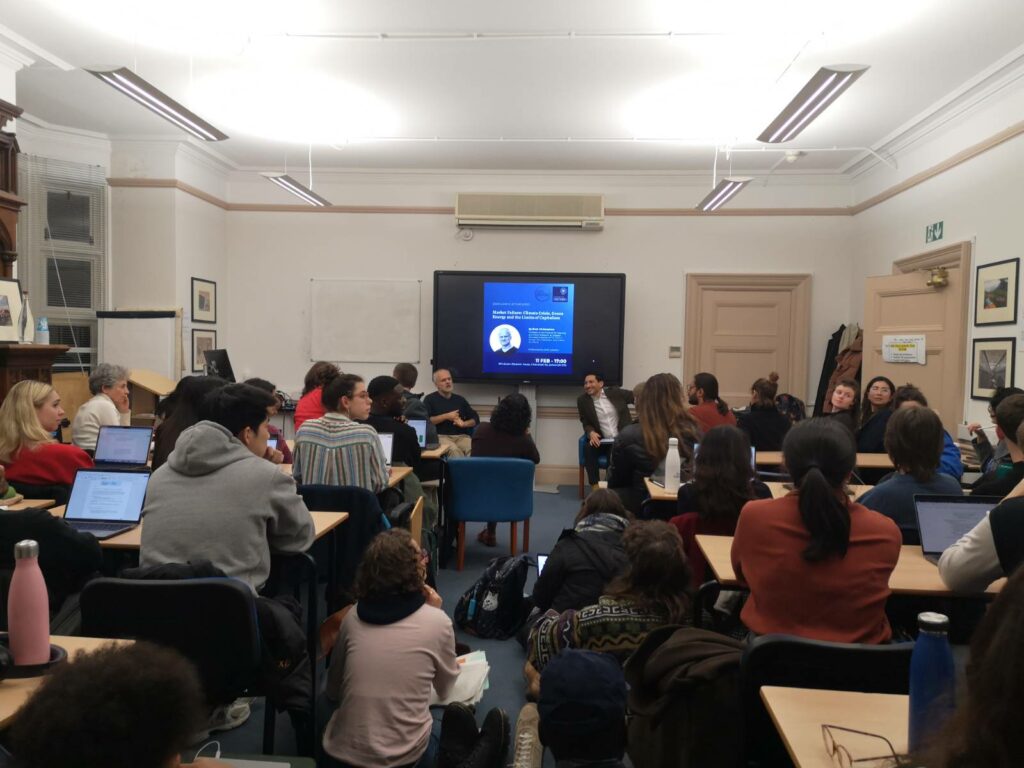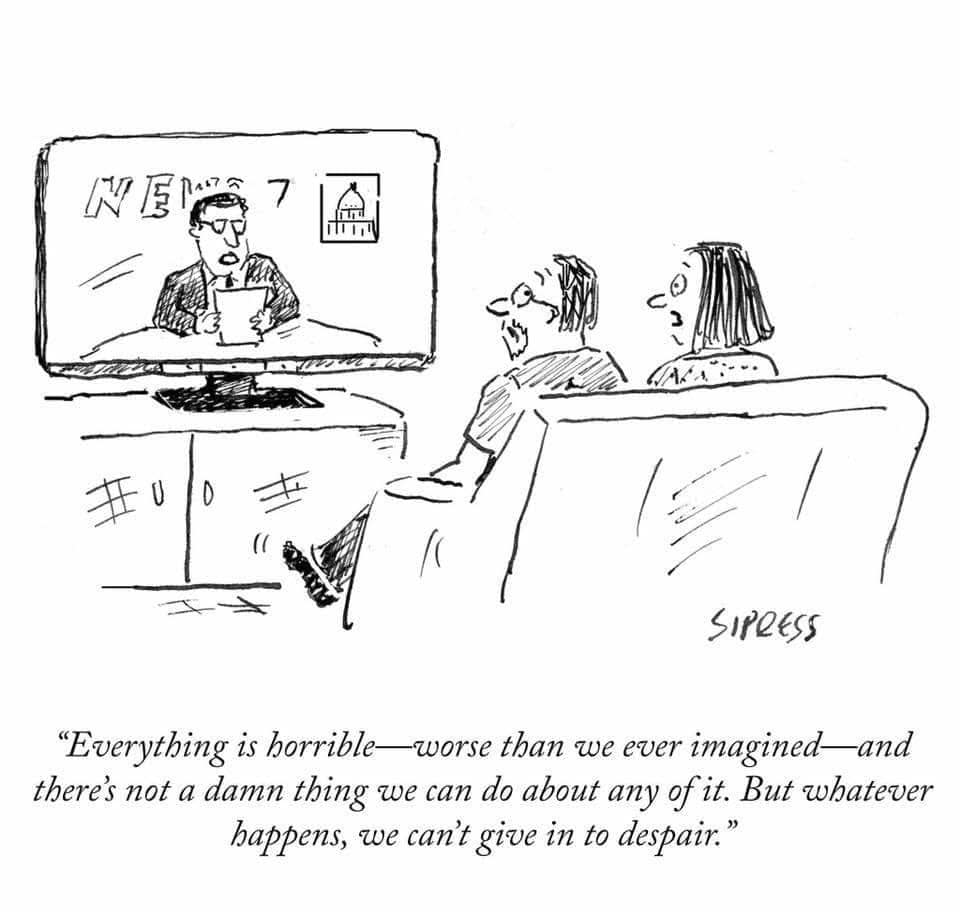Professor Brett Christophers (Uppsala University)
This lecture will explore the shortcomings of market-driven solutions to the climate crisis, the role of green energy, and the structural limits of capitalism in addressing environmental challenges.

The climate crisis is getting worse, not better. We are burning more fossil fuels, not less. Even with the massive expansion of renewables, energy use is still rising, because green growth adds to consumption rather than replacing it.
So, what’s blocking real change? Professor Brett Christophers lays it out: It’s not economics—it’s politics. The cost of renewables is dropping, largely thanks to China’s command economy driving down manufacturing costs. But the real problem is deployment, not production. Governments in the rich world still rely on the private sector to make the energy transition, using subsidies, tax incentives, and market nudges.
But capitalism is not built to save us, the market won’t solve this. The profit motive is a #blocking force. The oil and energy sectors are oligarchic, meaning investment only flows where market control guarantees profit. Renewable energy doesn’t work this way. Once solar panels or wind farms are built, everyone benefits, so investors can’t “capture” the value in the same way fossil fuel companies can.
This is why China is leading the transition. In 2023, 65% of global renewable investment was happening in China, before that, it was 90%. In contrast, the for-profit world is barely moving. The left is starting to rethink public ownership, but decades of privatization and #neoliberal dogma make this difficult, especially in the Global South, where many countries lost their public energy sectors over the last 40 years.
One small but key issue is that we are trapped in a modernist mindset, where the lights must come on when you flick the switch. The market logic of energy scarcity (storage = control = profit) is at odds with the need to stabilize and expand access. When energy storage becomes widespread, its market value drops, meaning investment dries up before it even begins.
Public ownership has a bad history, but so does privatization. Without cultural change, we are stuck with broken systems that won’t save us. The Coming Storm, in the next 10–20 years, shit is going to hit the fan. #climatechaos is not a distant threat, it’s already disrupting global energy grids. Look at China, where hydropower is failing due to extreme drought, and where record heat waves are driving air conditioning demand through the roof. These are feedback loops that increase carbon emissions, pushing us closer to tipping points.
Governments aren’t prepared for the chaos that’s coming. If history is any guide, they’ll do what they always do: double down on control, repression, and violence. As the crisis deepens, we could see a return to 20th-century authoritarian solutions, forced migration, resource wars, and military crackdowns. If you’re young today, ask yourself: What future are you walking into? What careers will put you on the wrong side of history? Which paths will put a gun in your hands, or leave you standing in front of one? These are grim questions, but they are real.
The #Deathcult has failed, what comes next? For 40 years, neoliberal capitalism has blocked systemic change. Market redesign might be possible, but power and politics shape the system, and the #deathcult that built this mess won’t give it up easily.
The #dotcons are stepping into the void. Big Tech is now playing the role governments used to play, guaranteeing long-term energy contracts to fund #datacenters and #AI infrastructure. But this is a narrow and unstable path, its more noise than signal.
We need alternatives, we need #publicownership, #commons-based solutions, and #4opens governance. We need to mediate our overconsumption, compost the #mainstreaming, and reclaim progressive paths before capitalism drives us into collapse.
If we don’t, the market’s failure will become our failure, and the planet won’t care whether we survive or not.
Market Failure: Climate Crisis, Green Energy and the Limits of Capitalism
Professor Brett Christophers (Uppsala University)
This lecture will explore the shortcomings of market-driven solutions to the climate crisis, the role of green energy, and the structural limits of capitalism in addressing environmental challenges.
My notes:
We are using more carbon based energy, adding to energy use with “green growth” this varies regionally, but the numbers are going up not down.
What is #blocking this, its political and policy he argues, the NIMBYs. The economics are not a problem, the costs are going down. The costs coming down is due to China with its central command economy, this is a useful view of the path we need to take. What’s #blocking it has to do with profitability not generating costs, what douse this mean? Deployment is the hidden “cost”, the hidden restraint. Governments in most parts of the world are relying on the private sector to make this energy change, using nudges, subsidy etc. the motivation is profit, and “confidence” in this profit.
Can capitalism save us?
The oil industry is full of oligarchy’s, this shapes investment. The electricity is the same, but how it’s generated has its own market value. Your ability to make a profit is only based on you capturing the market sector. The tech change helps everyone, so the is no profit, value if the investment can’t “capture” a sector.
He slags off the understanding of the Labour Party in the UK. One ansear is market redesign, that what we have is not “natural” but planned, it’s shaped by power and politics and for the agenda of this power. Then we have the artifice of “price” we have not planned this well enough yet, externality’s. In the UK the carbon tax could be argued to have worked with the phase out of the last coal power plant, drax, is shut. But the cost of a real carbon tax is to high for our “democracy” to implement. This is likely true.
More subsidy is an example, the Inflation Reduction Act in the US is an example. To incentivise the private sector to make the change in energy production.
The left criticises this, anti market, It’s still not working, this argument is likely true, look at china. Let’s look at this in 2023 its is 65% globe of renewables investment in China, before this it was 90% this almost nothing happening in the for-profit world, for profit is obviously not working. The left are starting to rethink public ownership as a path.
In China there are contradictions, it’s a mix of clean and dirty, energy demand is growing very fast, climate change is driving this in part, with the disruption of hydropower and the heat waves driving air conditioning, it’s a feedback loop. But it’s instructive with a very different political economy you can have very different outcomes in the energy transition.
This path might happen in the rich north, but will be hard to do in the weak south? They just don’t have the public budgets, some of these have only lost to privatization there public energy sectors over the last 40 years.
We are stuck in the modernist mind set, the lights must come on when you flick the switch. This is still a core #blocking force. Storage is to tame the market, to stabilize the price. The business model is based on the scarcity of storage so when we implement it can easily lose its market value, so investment will not flow in the first place.
Culture change is needed as public ownership does have a bad history as much a for-profit ownership, without this cultural change we don’t solve any of the mess.
One path is blended finance, but the is very little of this existing, so it’s not going to happen in a meaningful way despite the fluffy propaganda people spread.
The question of responsibility?
In the next 10–20 years shit is hitting the fan with #climatechaos we are likely to go back to the 20th century tradition of shooting people, I am wondering, for this generations job prospective, what careers are likely to lead to you being shot when this history repeats and what careers will leave you with the metaphorical gun in your hands, both of course are bad outcomes. But would be useful for young people to think about this to help choices a path after #Oxford
The question of cross discipline for the students comes up, but he says this is really hard, narrow areas, grants, and culture. His ansear is pessimistic, to play the game, till you have the power not to play the game, mess. He does not like it, but advises young people to play.
Market redesign, the #deathcult fucked over this path over the last 40 years.
AI and distributed energy, the #dotcons are pushing this, the preform the same role governments used to play, by garentlying prices in long term contracts for there new data centres, they promise long term fixed price which lets the banks fund projects. This is a very limited funding flow, so more noise than signal.

